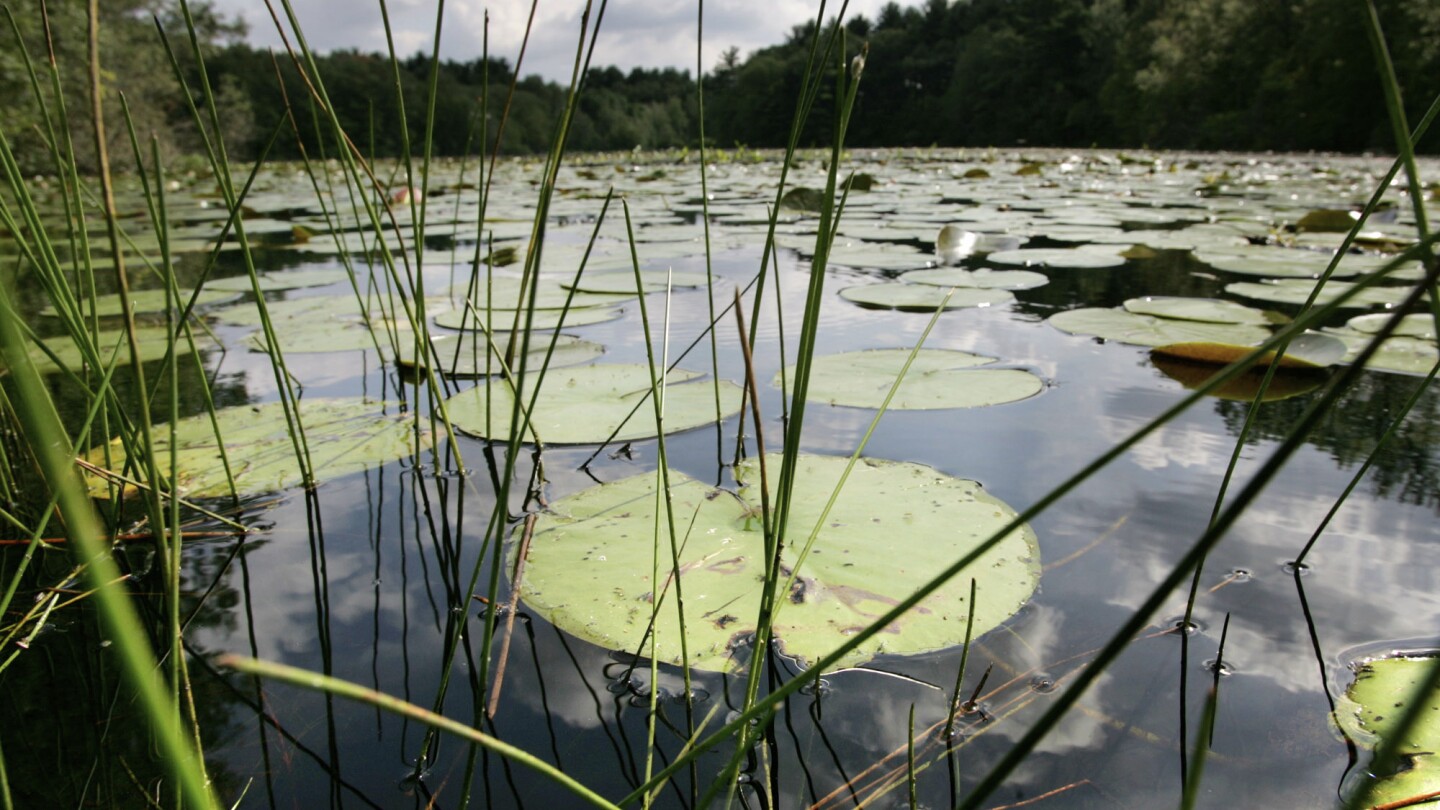Science
New research shows a quarter of freshwater animals are threatened with extinction

The Silent Crisis: Freshwater Species on the Brink of Extinction
The natural world is facing an unprecedented crisis, and the latest warning comes from an unexpected front: freshwater ecosystems. A groundbreaking study published in the journal Nature reveals that nearly a quarter of animals living in rivers, lakes, and other freshwater sources are threatened with extinction. This shocking statistic highlights the fragility of these ecosystems, which, despite their vital importance, are often overlooked. Researchers examined approximately 23,500 species—ranging from dragonflies to fish and crabs—that depend exclusively on freshwater habitats. Their findings paint a grim picture: 24% of these species are classified as vulnerable, endangered, or critically endangered. The threats they face are not isolated but are instead the result of a combination of factors, including pollution, dam construction, water extraction, agriculture, invasive species, and climate change. As Catherine Sayer, a zoologist at the International Union for Conservation of Nature, notes, "Most species don’t have just one threat putting them at risk of extinction, but many threats acting together."
The Fragility of Freshwater Ecosystems
Freshwater habitats, which include rivers, lakes, ponds, streams, bogs, and wetlands, cover less than 1% of the Earth’s surface. Yet, they support a staggering 10% of the planet’s animal species. This disparity underscores the critical role these ecosystems play in sustaining biodiversity. However, their small size relative to the planet’s surface area also makes them incredibly vulnerable to disruptions. Patricia Charvet, a biologist at Brazil’s Federal University of Ceará and a co-author of the study, explains, "Huge rivers like the Amazon can appear mighty, but at the same time, freshwater environments are very fragile." The concentration of threats in these ecosystems means that even small disturbances can have devastating consequences. For example, illegal gold mining in the Amazon Basin releases mercury into the water, while deforestation and wildfires result in waves of ash that pollute rivers. These pollutants can threaten entire species, as freshwater animals have nowhere else to go.
A Global Perspective on Freshwater Threats
The study is the first of its kind to analyze the global risk to freshwater species. Previous conservation efforts have primarily focused on land animals, such as mammals, birds, and reptiles. This oversight has left freshwater ecosystems and their inhabitants in a precarious position. Stuart Pimm, a Duke University ecologist who was not involved in the study, praises the research as "a long-awaited and hugely important paper." Pimm highlights the widespread modification of major rivers in North America and Europe through damming, which has put freshwater species at significant risk. In South America, the Amazon River ecosystem faces additional threats from deforestation, wildfires, and illegal gold mining. Charvet emphasizes that rivers and wetlands "concentrate everything that happens around them," making them particularly susceptible to environmental disasters. Whether it’s an oil spill, an acid leak, or a surge of pollutants, such events can push entire species to the edge of extinction.
The Interconnectedness of Freshwater Ecosystems
Freshwater ecosystems are not just repositories of biodiversity; they also play a crucial role in sustaining human life and the planet’s ecological balance. Rivers, lakes, and wetlands provide clean water, support agriculture, and regulate the climate. However, their importance extends beyond these practical benefits. Freshwater habitats are also intricately connected to the surrounding landscape, acting as conduits for nutrients, sediment, and energy. This interconnectedness means that disruptions to these ecosystems can have far-reaching consequences. For instance, the construction of dams can disrupt fish migration patterns, altering the food chain and affecting both aquatic and terrestrial species. Similarly, invasive species introduced into freshwater ecosystems can outcompete native species for resources, leading to a cascade of ecological changes. The study underscores the urgent need to recognize the value of these ecosystems and to take immediate action to protect them.
The Call to Action: Protecting Freshwater Ecosystems
The findings of the study serve as a wake-up call for global conservation efforts. Freshwater ecosystems are often viewed as resilient, but the reality is that they are on the brink of collapse. The study’s authors and other experts are urging policymakers, conservationists, and the public to take action to address the multiple threats facing these ecosystems. This includes reducing pollution, protecting habitats, and mitigating the impacts of climate change. Charvet notes that freshwater species have "nowhere else to go," making conservation efforts all the more critical. By safeguarding these ecosystems, we not only protect the animals that call them home but also ensure the health and sustainability of our planet. The time to act is now, as the window for preventing widespread extinctions is rapidly closing.
Conclusion: The Future of Freshwater Biodiversity
The study published in Nature is a powerful reminder of the fragility and importance of freshwater ecosystems. With nearly a quarter of freshwater species at risk of extinction, the situation is dire, but it is not hopeless. By understanding the interconnectedness of these ecosystems and the cumulative threats they face, we can begin to address the root causes of biodiversity loss. The study’s findings should serve as a catalyst for global action, inspiring governments, organizations, and individuals to prioritize the conservation of freshwater habitats. As we move forward, it is essential to recognize that the fate of these ecosystems is inextricably linked to our own. Protecting freshwater biodiversity is not just about saving animals; it is about preserving the delicate balance of life on Earth.